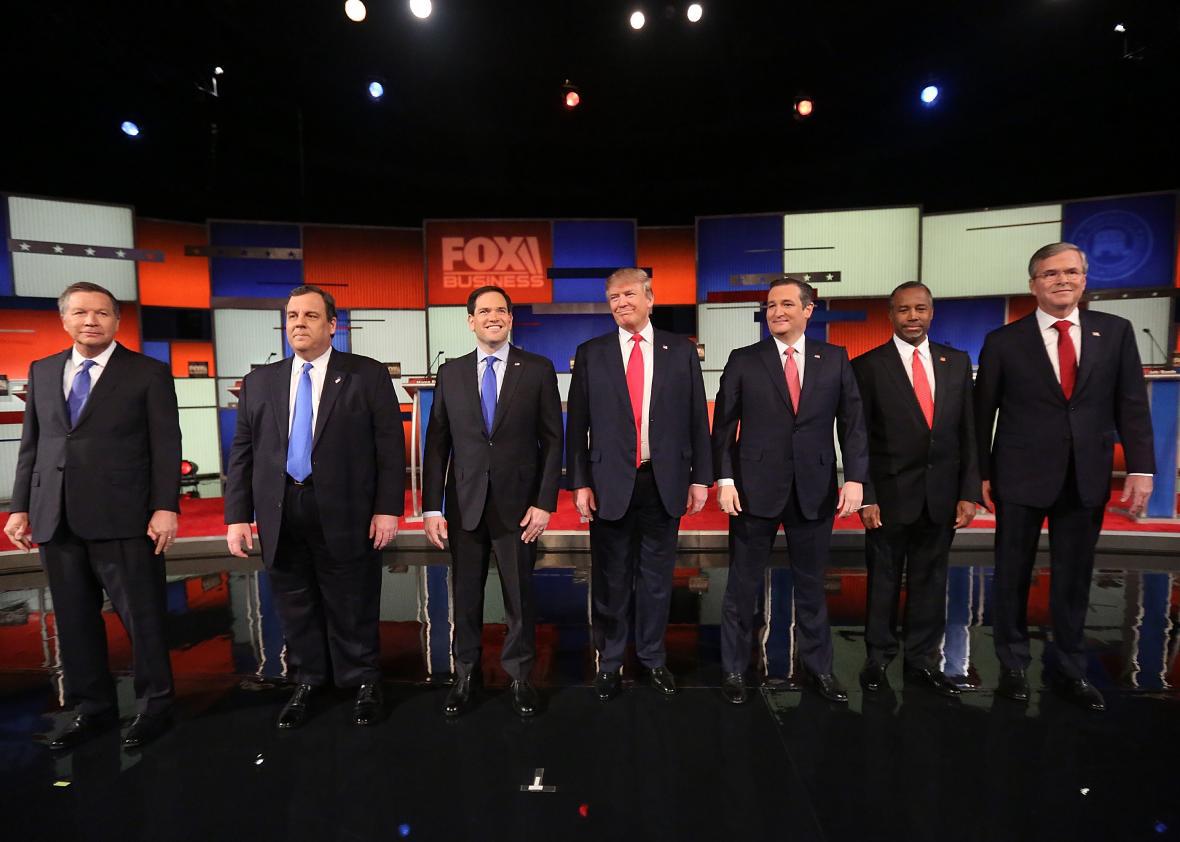If you’re, say, a K–12 education blogger who eagerly tunes in to presidential debate after debate in the hopes of encountering some juicy electoral fodder, you might have noticed something: None of the candidates are talking about education. Like, at all. Hillary Clinton and Bernie Sanders have offered competing plans to tackle college affordability, and numerous candidates in the Republican field have squabbled over who hates the Common Core standards the most. But as for actual main-course education conversations—it just isn’t what’s for dinner this cycle. Even with the much-delayed passage of a new Elementary and Secondary Education Act, K–12 as an election topic has been low, low on the list of election priorities—below, well, everything.
A column in Education Week on Tuesday by well-known education researcher Rick Hess suggests one explanation for this omission: Candidates aren’t talking about education because voters don’t seem all that interested it. Hess looked at a slew of big polls conducted over the course of 2015 that asked voters to name the “nation’s most important problem.” In voters’ answers, education peaked last winter: In January, education ranked in fifth in a CBS poll, and in February, 7 percent of Gallup respondents said education was the country’s most important problem.
But those figures, already modest, have been steadily declining over the past year. Hess writes: “Overall, in just six of the 21 surveys did even 5% of respondents name education as the nation’s top problem” and “Since May … it’s been seventh or lower in 14 of 16 polls. Of the eight polls conducted after Labor Day, it ranked tenth or lower six times.”
There are some obvious reasons why education—never the sexiest headline-maker, to be sure—is getting such short shrift this cycle: People are more afraid of terrorism than any time since 9/11, and Trump has shoved immigration to center stage, and by comparison “education isn’t as urgent a concern.” And perhaps it’s also that, unlike some of those areas, educational debates in the age of reform seldom divide so cleanly along party lines. Hess writes:
[E]ducation has generally been how conservatives show themselves to be compassionate and how liberals show they’re practical and responsible. This election, candidates face intense pressure on the left and the right to demonstrate that they’re ideologically reliable—and education is less helpful on that count.
According to Hess, “our last three presidents all made their thinking on education an integral part of their persona … well before the first primary ballots were cast,” but not this time. A big reason for this, which Hess doesn’t get into in this piece, is that with every passing year, education provides less and less of a tidy left-right gauge of that ideological reliability. As President Barack Obama’s track record proves, it’s possible to possess traditionally “liberal” views on, say, abortion and gun control while still being heavily in favor of charter schools and somewhat warier of teachers unions. And yet for many liberals, charter schools are the first step on the road to vouchers and the total destruction of the American education system—which is why someone like Hillary Clinton, who has the backing of the teachers unions, recently walked back her longtime support for charter schools. (My husband’s firm, Revolution Messaging, runs digital operations for the Bernie Sanders campaign, which is why I have only been blogging about Republican candidates this cycle.)
By the same token, some conservatives still support national standards; others speak out vehemently against them. It is possible to be liberal and in favor of school choice, or conservative and in favor of the Common Core—but it’s hard to get such subtlety across in sound bites. That may be one important reason why the 2016 candidates prefer simply to avoid the topic altogether.
